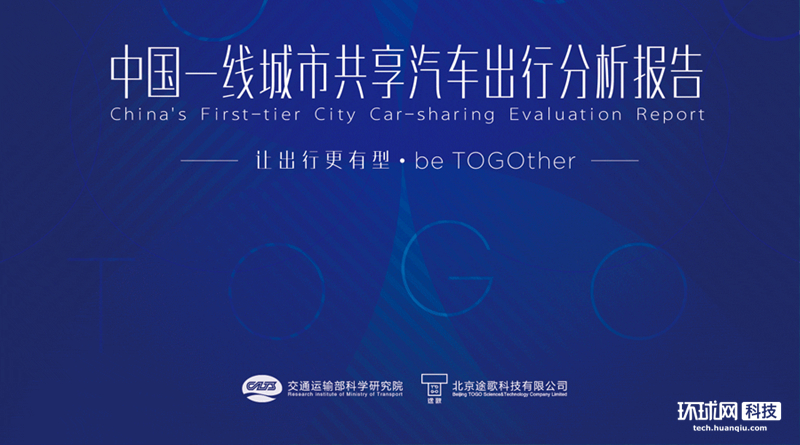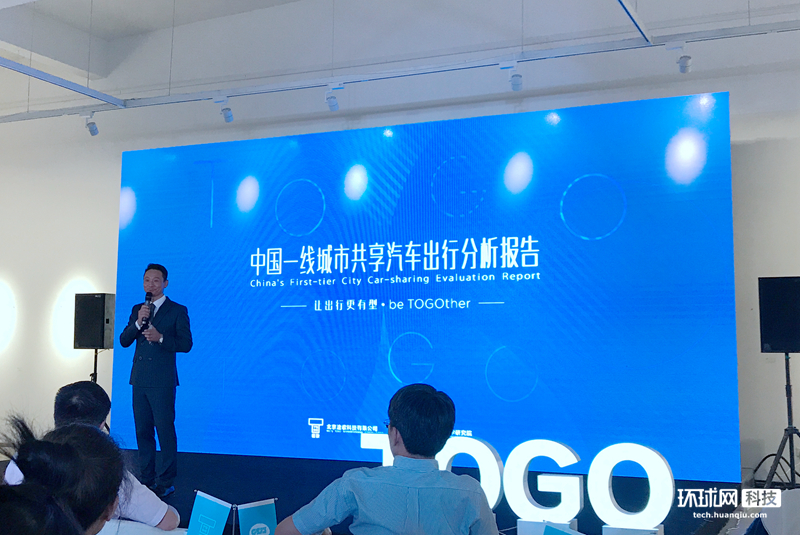[Global Technology Reporter Li Xiaoshan] “The sharing economy†can be said to be a very popular keyword so far. From "shared charging treasures" to "shared bicycles" to "shared cars," more and more people and people are participating in the "sharing economy." On May 23, a company representative from the Ministry of Transport Research Institute and the joint venture of Beijing Way Song and other automakers officially released the “Analysis Report on China's First-tier Cities Sharing Car Trips†in Beijing. This is the first trip analysis in China for the car sharing market. report.

The "Analysis Report on China's First-tier Cities Sharing Car Trips" released this time is based on the big data platform of Beijing Autos and other shared cars, and is provided by China's Transport Big Data Application Center, Traffic Statistics Information and Economic Operation Analysis Technology Laboratory. Data support, from the four dimensions of the birth of shared cars, user portraits, travel experience and social values, comprehensively interprets the current running status and future trends of shared cars in China's first-tier cities.
According to this report, the number of private car licenses in China has already exceeded 300 million, while private car ownership is less than 100 million. There are more and more car lovers who have a driver's license and no cars. Statistics: In Beijing alone, the number of people waiting in line for car license plates has exceeded one million.

The difficulty in parking and the increasing cost of parking are another major problem that has plagued the car owners in China’s first-tier cities. By the end of 2016, the gap in parking spaces in China’s first-tier cities was as high as 55.64 million, and the problem of urban parking was becoming increasingly prominent. Whether it is temporary parking or long-term parking, I believe that many people are bothered by the little parking space.
It is against this background that shared cars represented by Togo’s road song have emerged for the last two years. These shared car platforms have provided a large number of new ways of car travel to enable cities to effectively improve the efficiency of China’s automobile travel. Travel is getting better and better.
A lithium polymer battery, or more correctly lithium-ion polymer battery (abbreviated as LiPo, LIP, Li-poly, lithium-poly and others), is a rechargeable battery of lithium-ion technology using a polymer electrolyte instead of a liquid electrolyte. High conductivity semisolid (gel) polymers form this electrolyte.High power. Both lithium-ion and lithium-poly batteries are suitable with high and robust power usages. However, lithium-ion batteries are more efficient and popular than lithium-polymer.Many manufacturers have stated that their LiPo batteries will last 2 or 3 years. This is a somewhat realistic approximation for a scenario where a battery is regularly used and charged around 2 or 3 times a week.Lithium polymer batteries could potentially be dangerous. ... However, if care is taken to store the batteries properly, Lithium batteries shouldn't be very dangerous at all. Additionally, Lithium polymer batteries should be even safer than traditional Lithium batteries.Lithium Polymer batteries are perhaps the most hazardous parts we deal with on a day to day basis when it comes to our miniquads. This is both because of their propensity to explode into a small fireball when mistreated and because of the massive amount of power they are capable of dumping out of their terminals.
Li-Polymer Battery,Polymer Battery,Phosphate Battery Lifepo4 Battery,Polymer Lithium Battery
Shenzhen Glida Electronics Co., Ltd. , https://www.szglida.com